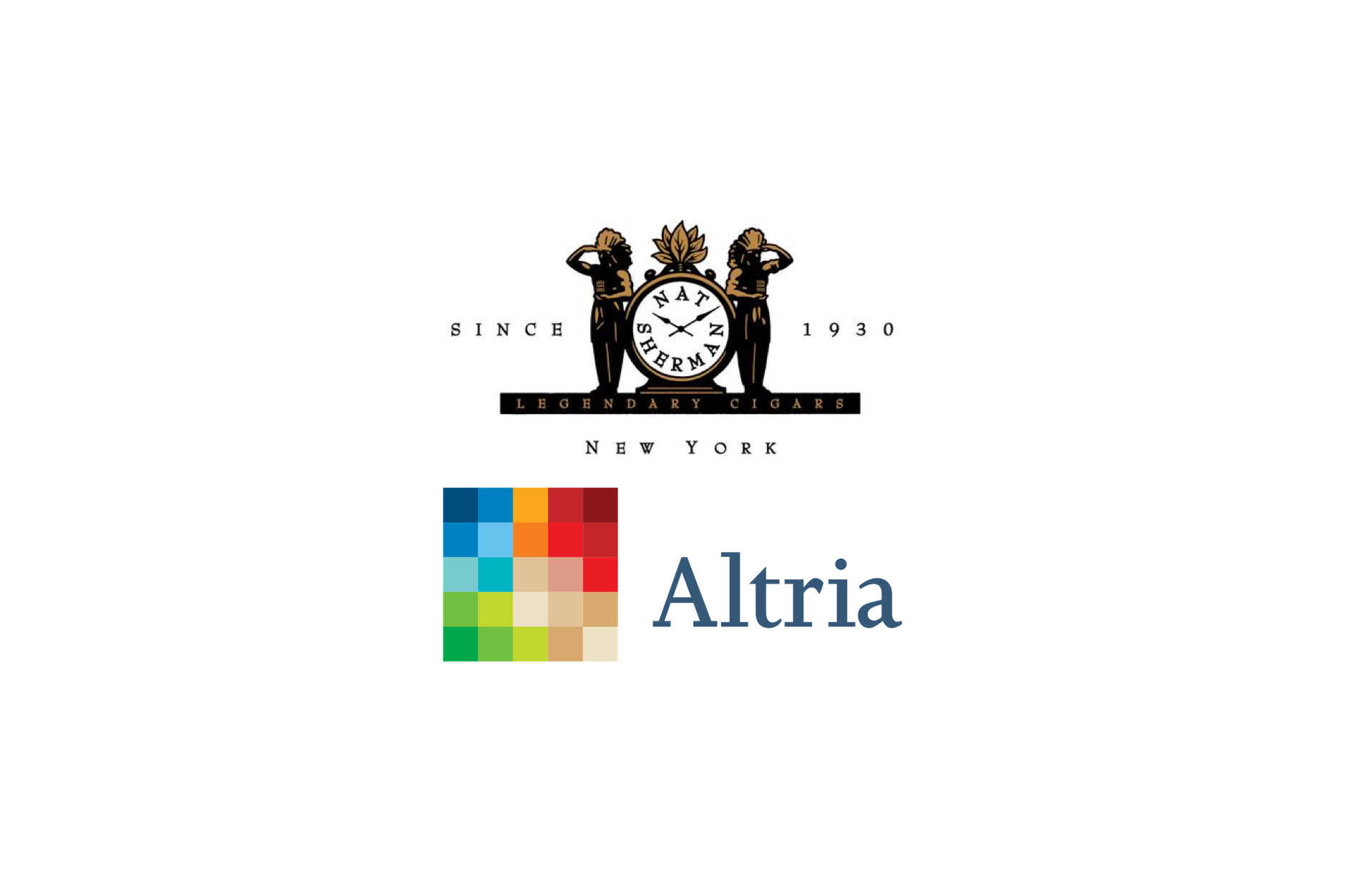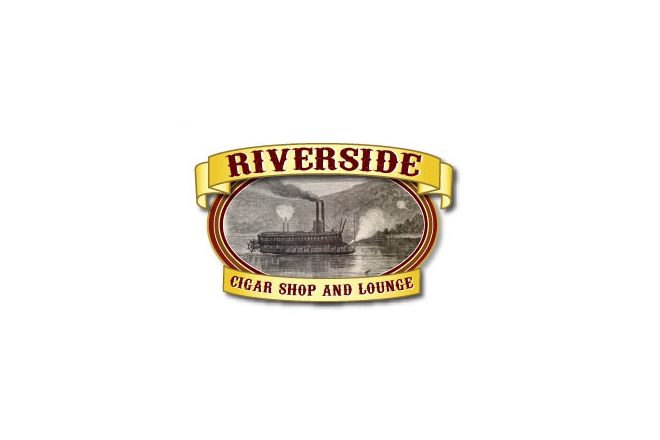This morning, Altria announced that it was exploring a sale of Nat Sherman International, the premium cigar division for Nat Sherman. Up for sale is the premium cigar wholesale business, the related pipe tobacco business and the Nat Sherman Townhouse, a large retail store and lounge in Manhattan.
Altria bought all of Nat Sherman in early 2017— and the belief at the time was that the sale was largely motivated by Nat Sherman Naturals, a natural leaf-wrapped cigarette that competes with American Spirit, owned by Altria competitor British American Tobacco.
But the deal included of all Nat Sherman, which meant that the brand’s premium cigar division was now owned by Altria, the company behind Phillip Morris USA, the owner of Marlboro, as well as Black & Mild machine-made cigars and Copenhagen and Skoal, two smokeless tobacco brands and many others.
Altria’s announcement was basically a for sale sign in the yard: we are looking to sell and open to offers.
And with that, seven thoughts.
1. THE ACT OF SELLING IS A GOOD DEED BY ALTRIA
Most companies would not buy a cigar company only to shut it down, but Altria is not most companies. Last year, the company generated over $25 billion in revenue, more than the entire premium cigar industry combined. Who knows what the bids will end up being for Nat Sherman, but my guess is that they will be far less than a 10th of a percent of $25 billion, i.e. south of $25 million.
Companies the size of Altria will buy companies and shut them down regularly; or in the case of Nat Sherman, buy a company, take what it wants (the cigarette brand) and just shut the rest of it down. Companies aren’t people—they have numbers, not feelings.
Altria’s net income was nearly $7 billion last year, meaning if it generated say $12 million from the sale of Nat Sherman International, it would be the equivalent to less than a half of a day’s worth of profit.
All of this is to say, the fact that Altria is even considering a sale is a massive win for Nat Sherman International employees and anyone that enjoys the brand’s cigars or retail operation.
I do think it’s worth pointing out what happens if Altria hasn’t sold Nat Sherman International in a year. Just because it is willing to consider a sale now doesn’t mean it will always be on the table.

2. AND IT’S WHAT’S BEST FOR THE CIGAR DIVISION
Michael Herklots, vp of Nat Sherman International, will stand on whatever building he can find and shout that this is a good thing and I’m inclined to believe him.
All of the vitriol that was created surrounding Altria’s stance on premium cigars being exempt from FDA regulations hurt Nat Sherman’s cigar business, a lot. More on that below, but getting out from under the wing of big tobacco, especially Altria, is good.
We’ve noted on this site multiple times, but up until very recently, Nat Sherman International wasn’t releasing new cigar labels. Herklots would say that some of that was planned Altria or not, but some of it definitely was a result of the complications of working under a big company and also working under a company that has a lot more regulatory rules it must follow.
One thing that always bugged me about the firestorm surrounding Nat Sherman last year was that no one—Herklots or otherwise—was responsible for writing that letter. That came from Altria corporate, who if it’s not entirely clear by the first point, really couldn’t and probably shouldn’t care about premium cigars.
And yet, the headaches, the loss of sales and the rest of the mess fell on Nat Sherman International employees, not Altria.
3. NAT SHERMAN INTERNATIONAL COULD BE SPLIT UP
I’ve been told that Altria is open to selling the business in pieces meaning the retail business could be split from the wholesale cigar division. And that’s interesting.
This is pure speculation, but I’m guessing that someone like Rocky Patel Premium Cigars, Inc. has little interest in the whole business because it has about zero interest in the wholesale cigar division. That being said, Rocky Patel would certainly come up as a potential buyer for the Nat Sherman Townhouse.

4. THE LIST OF BUYERS WILL BE INTERESTING
I’m guessing that Scandinavian Tobacco Group, parent of General Cigar Co. and Cigars International; J. Cortès, owner of Oliva; and the other active bidders of late all take a serious peek at Nat Sherman’s business, but the fact that Altria is willing to split it up makes the list far more intriguing.
Normally, I would say that Tabacalera USA—parent of Altadis U.S.A., JR Cigar and Casa de Montecristo—would be a very active bidder on the retail operation, but given that the company is about to be sold, I’m guessing they might sit out this one.
The standalone retail business will also attract a long list of interested buyers, some of whom may not have any interest in running a cigar store but rather just want the lease.
5. THIS IS NOT GOOD FOR THE REGULATORY FIGHT
Last August, Altria submitted a comment to FDA as part of the agency’s review of its regulations of premium cigars. While most companies involved in the premium cigar industry who submitted comments argued for an exemption, Altria’s letter argued against an exemption, but instead more lax rules for premium cigars.
Cigar Aficionado then published an article titled America’s Largest Cigarette Company Comes Out Against FDA Exemption For Handmade Cigars and a shitstorm—that’s really the only word I can think of—followed with most of the vitriol directed at Nat Sherman’s cigar division.
I had some thoughts in the wake of that, but the three most salient ones to me were: a. this is better than Altria’s position from 2014, and b. Altria’s position on regulations was probably one most cigar companies would be willing to live with if FDA presented it to them.
I also pointed out that trying to fight both FDA and Altria was a lot worse than just fighting FDA.
There are many reasons why Altria is exiting the premium cigar industry, but it’s not because it’s just a cigarette company. Altria owns various wineries and has a stake in AB-InBev, the massive beer conglomerate.
But it is fair to say that Altria’s core business—legacy tobacco products like Marlboro, Copenhagen, Skoal and Black & Mild—and premium cigars are not aligned in the regulatory fight. And its future business—the company’s minority stake in Juul—are not aligned with the fight the premium cigar is waging.
I am led to believe that outside of lodging insults at Nat Sherman last August the cigar industry didn’t really interact with Altria’s management over the last two years, and that’s a shame if, for nothing else, we as an industry really could have learned more about how to fight our battle from a company that has written the book on fighting government regulation.

6. THINGS ARE A BIT WEIRD AT ALTRIA AT THE MOMENT
We don’t cover big tobacco or the vaping business, except when there’s some sort of cigar connection, but just from the outside looking in, Altria seems a bit unsteady.
First, there’s Juul, the ubiquitous vaping device that Altria purchased a minority stake in last year. After a somewhat prolonged courtship, the tobacco giant paid $12.8 billion for a 35 percent stake in Juul Labs last December.
Vaping products in general are not having the best of times, but Juul, in particular, is feeling the rath.
Last week, the company announced that it would stop selling flavored pods—outside of mint and menthol—until after it got FDA approval, the latest in a long list of voluntary concessions the company has made to FDA lately. Juul’s ceo resigned last month and then there’s been some baffling public screw-ups like when the company launched in China and then pulled out of the market in less than a week.
Independent of Juul’s own actions, a variety of states have tried to temporarily ban vaping devices, albeit with limited success, though countries like India have successfully outlawed them.
And then there’s the failed merger with Phillip Morris International (PMI). Altria owns Phillip Morris USA and used to own Phillip Morris International. In 2008, for a variety of reasons, Phillip Morris International was spun-off. Like many cigarette brands, the rights to Marlboro in the U.S. belong to one company and the international rights belong to another company, which is also now a competitor.
Earlier this year, the two companies—PMI is bigger than Altria with annual revenue close to $80 billion—announced they were considering a merger. And then a few weeks later, they announced they were no longer considering the merger. These things happen and due to the size and public nature of the two companies, they had to disclose it, but it’s just another entry into what’s been a weird year for Altria.
All of that said, I don’t think any of that had any effect on the decision to leave the cigar business.
7. ON MERGERS & ACQUISITIONS
I suppose that someone predicted that after FDA regulations took effect we would see a rash of sales of companies. This is the third notable company in as many quarters to be in the midst of a formal sales process following the sale of Agio to STG and the aforementioned sale of Imperial.
I’m not sure how much FDA’s regulations of cigars had to do with any of them, it’s certainly part of it, but not a compelling part as far as I can tell.
The bigger story is that the two largest companies involved with the cigar industry—Altria and Imperial—are leaving within a short period of time. And if you want to get even more technical, in 2017, Swedish Match exited the industry after selling its stake in STG and British American Tobacco announced that it would no longer sell Dunhill cigars. Those four companies have a combined market capitalization of over $260 billion today. (For references, my guess is that the combined annual revenue of all of the premium cigar interests owned by those companies is less than $600 million today.)
Some might speculate that big tobacco thinks that the premium cigar industry is dying; ladies and gentlemen, that ship sailed a while ago.
Even Imperial—who might get $2 billion for its cigar divisions—hasn’t considered premium cigars a core pillar in quite some time. Altria was only in it because it was part of the package, Swedish Match had wanted to leave for most of the last decade and BAT let General Cigar Co. more or less run Dunhill’s cigar sales.
Regardless, the island is getting more insulated and a part of it is that of our own doing.



